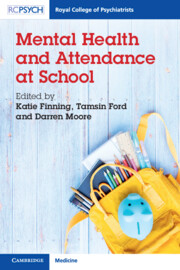Objectives: To examine the mental health status of homeless children and their families living in a supported temporary housing project.
Method: The assessment measures used: (i) the 28-item General Health Questionnaire (GHQ); (ii) the Child Behaviour Checklist (CBCL); and (iii) the Parenting Stress Index (PSI). The population studied consisted of 14 families and 31 children. Children aged two to 16 years were eligible for the study. Most of the families (12/14) assessed were single parent (mother only) family units.
Results: The General Health Questionnaire was completed by the 14 mothers and two fathers. Of the mothers 28% (4/14) indicated the presence of psychiatric ‘caseness’. The Child Behaviour Checklist (CBCL) was completed on 31 children by the mothers. More than a third of the children (12/31) had a Total Problem Score above the ‘clinical’ threshold, indicating the presence of mental health problems of sufficient severity to merit referral for treatment. Of the children 45% (14/31) manifested externalising problems in the ‘deviant’ range, while 29% of the children (9/31) manifested internalising problems in the ‘clinical’ range. In all, when the CBCL scores were examined within each family, 78% (11/14) had at least one child with a CBCL dimension of clinical significance. The Parenting Stress Index was completed by each mother. Of the mothers 70% (10/14) obtained scores in the critical range. They reported feeling incompetent in their parenting role, being dominated by their children's needs and feeling social isolated from their relatives and peers. Their scores also indicated poor self-esteem and significant depressive symptoms. Of note the peak score was the lack of emotional and active support from the other parent.
Conclusion: This study revealed a high level of stress and clinical morbidity in this group of homeless mothers and their children and the need to provide appropriate mental health supports and services for them.
